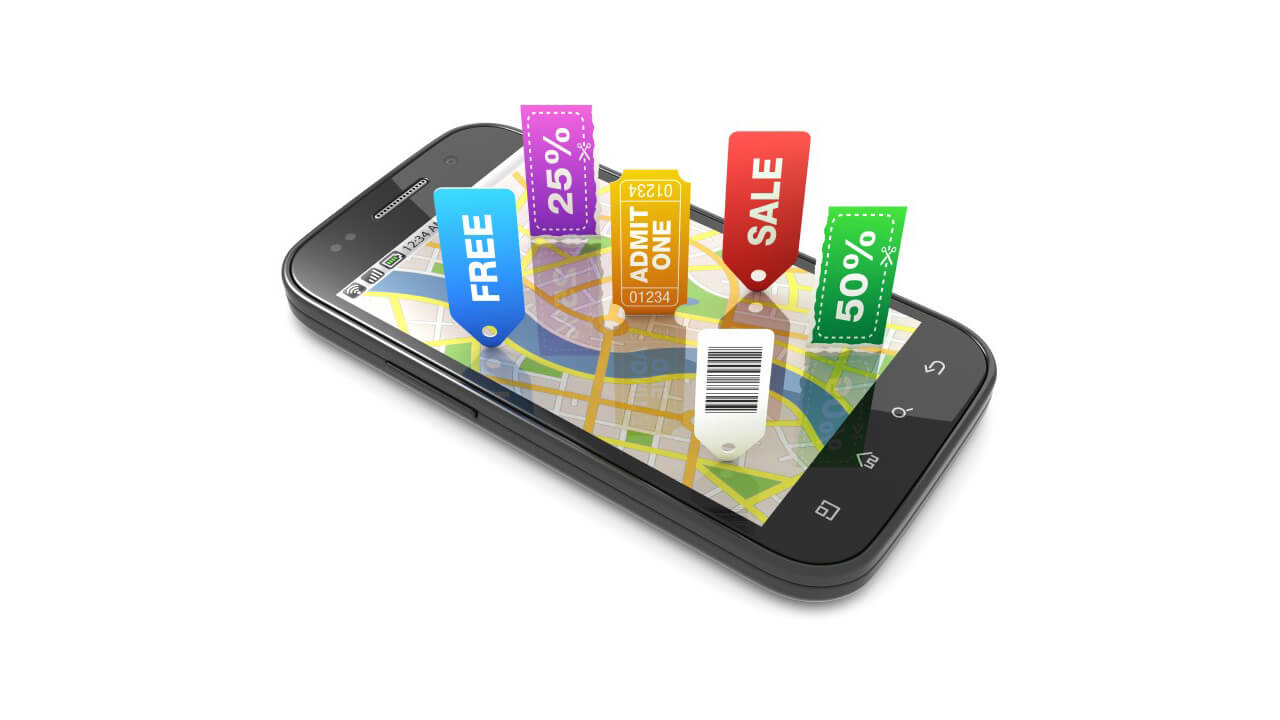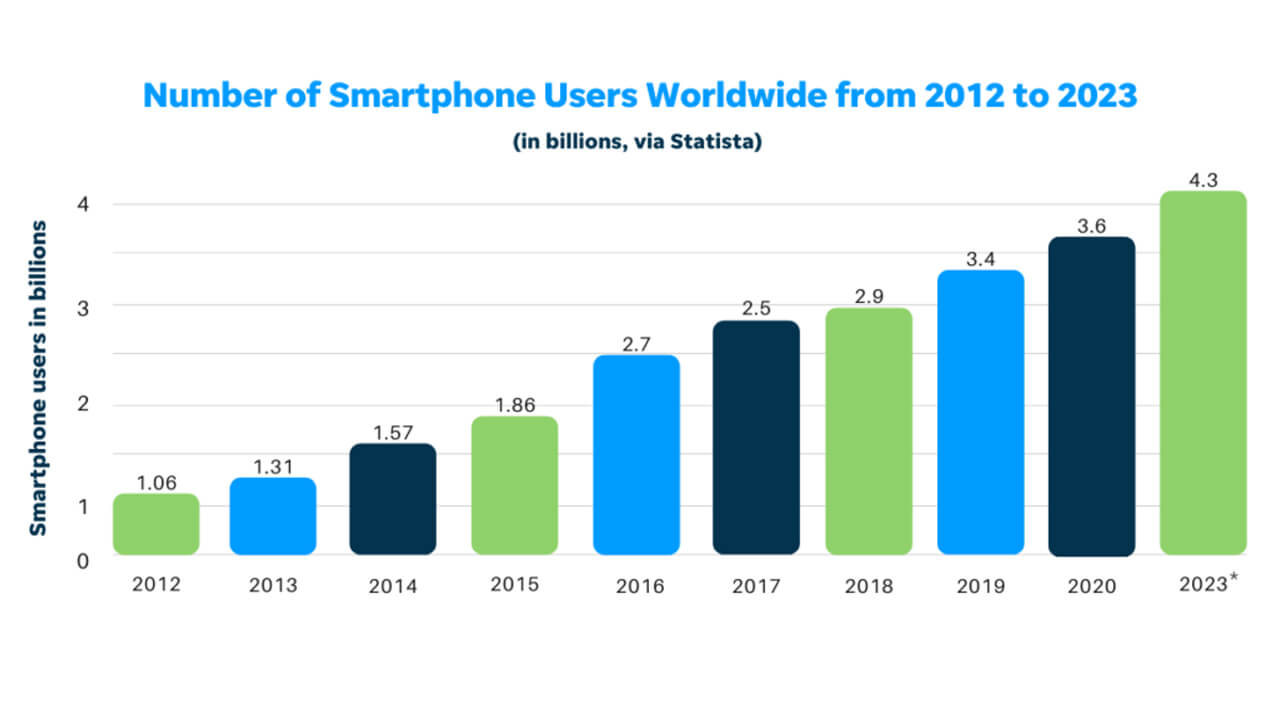
Have you ever wondered how your smartphone, that constant companion in your pocket, can hold the key to unlocking incredible opportunities for your business? From the moment we wake up to the minute we go to sleep, our smartphones are our constant companions, offering us a gateway to the digital universe.
With more than 6 billion smartphone users worldwide, there are more than 6.5 million apps in the major mobile app stores, millions of web apps, and more than a billion websites in existence. Mobile marketing has emerged as a potent tool for businesses to engage with their target audience, increase brand visibility, and boost revenue.
This article will take you on a journey through the exciting world of mobile marketing, providing insights, tips, and strategies to help you master this dynamic and ever-evolving field.
Mobile marketing has evolved rapidly over the past decade, transforming the way businesses interact with consumers. It all started with text messages and basic mobile websites, but today, mobile marketing encompasses a vast array of tools and strategies.
The rise of mobile marketing can be attributed to several factors, including:
Smartphones are no longer a luxury; they are a necessity for billions of people. The increasing affordability and accessibility of smartphones have widened the reach of mobile marketing, allowing businesses to connect with an ever-expanding audience.
Mobile apps have become an integral part of our lives. Businesses have capitalized on this by creating their apps to offer convenient, personalized experiences to their customers.
Social media platforms are predominantly accessed via mobile devices. Leveraging these platforms is essential for effective mobile marketing, as they enable real-time interaction with your target audience.
GPS technology in smartphones allows businesses to target consumers with location-specific ads and promotions, making marketing messages more relevant and timely.
The evolution of mobile advertising formats, such as video ads, native ads, and interactive ads, has made mobile marketing more engaging and effective.
Now that we understand the key drivers of mobile marketing’s growth, let’s delve into various strategies and best practices to master this exciting field.

Your website and emails must be optimized for mobile devices. With a responsive design, your content automatically adjusts to fit various screen sizes, providing a seamless user experience. Mobile users are quick to abandon sites that are not mobile-friendly, so responsive design is a must.
Consider developing a mobile app for your business. Apps provide a direct channel to your customers, offering personalized experiences, push notifications, and the ability to collect valuable data on user behavior.
SMS marketing remains a potent tool to reach customers instantly. Send targeted promotions, discounts, or important updates directly to your subscribers’ text messages.
Leverage the power of social media platforms. Create engaging and shareable content, run targeted ads, and encourage user-generated content. Social media is where your audience spends a significant amount of their time.
Harness the GPS capabilities of mobile devices to deliver location-based offers and messages. When a customer is in proximity to your business, send them a coupon or invite them to visit your store.
Video content is highly engaging and has a proven track record of success in mobile marketing. Consider creating short, attention-grabbing videos to showcase your products or tell your brand’s story.
Want to dive headfirst into the fast-paced world of modern marketing?
Check out: 7 Horrible Mistakes You are making with Marketing!

Source: LocaliQ
Data is the lifeblood of mobile marketing. It provides invaluable insights into user behavior, preferences, and demographics. By analyzing this data, you can refine your mobile marketing strategies and enhance user experiences. Here’s how you can use data to your advantage:
Create detailed user profiles to understand your audience better. Knowing your customers’ age, gender, location, interests, and online behavior helps tailor your marketing messages.
Use the data you gather to create personalized marketing campaigns. Send messages and offers that are relevant to individual customers, increasing the chances of conversion.
Continuously test different mobile marketing strategies to see what works best. A/B testing allows you to make data-driven decisions and optimize your campaigns for better results.
Leverage analytics tools like Google Analytics and mobile-specific platforms like Firebase to track user engagement, conversion rates, and other key performance indicators.
Encourage customers to provide feedback through mobile surveys or reviews. This not only helps you understand their needs but also builds trust and loyalty.
Push notifications are a powerful tool in mobile marketing. These short, timely messages appear on a user’s mobile device, offering opportunities for immediate engagement. However, they must be used carefully to avoid becoming intrusive.
Here are some best practices for using push notifications effectively:
Personalization: Customize push notifications based on user preferences and behavior. Deliver relevant content that aligns with the user’s interests.
Timing: Timing is crucial. Send push notifications at the right moment when users are most likely to be receptive. Avoid sending them during the late hours or when they might be busy.
Frequency: Don’t bombard users with too many notifications. A well-timed, occasional message is more effective than constant interruptions.
Value: Provide value in your notifications. Whether it’s a special offer, a relevant news update, or an event reminder, ensure that your notifications bring something meaningful to the user.
Opt-In: Respect user preferences. Always ask for their permission to send push notifications and make it easy for them to opt-out if they choose to.
While mobile marketing offers numerous advantages, it also comes with its own set of challenges. Here are some common challenges and solutions to overcome them:
The Android and iOS platforms come in various device sizes and operating system versions, making it challenging to ensure a consistent user experience. The solution is to prioritize responsive design and rigorous testing on different devices and platforms.
Data privacy is a significant concern for mobile users. Be transparent about your data collection and usage practices and ensure compliance with data protection regulations.
With millions of apps available, it’s challenging for users to discover new apps. Invest in App Store Optimization (ASO) to improve your app’s visibility.
Ad blockers can hinder your mobile advertising efforts. Focus on creating non-intrusive, high-quality ads that users won’t want to block.
User retention is a critical challenge in mobile marketing. Keep users engaged with your app by providing regular updates, personalized content, and a user-friendly experience.
Related Article: How to Analyze Customers to Understand the Digital Consumer?
Here are the reasons why you should choose Laurea People’s Signature for your mobile marketing;
✓ Mobile-First Expertise: Our team of seasoned experts is well-versed in the art of crafting mobile-specific strategies that resonate with your target audience.
✓ Innovative App Marketing: We know the app stores’ algorithms inside and out, ensuring your app gets the attention it deserves.
✓ Responsive Design Mastery: Our responsive design solutions ensure your website and content are beautifully displayed on screens of all sizes, keeping your audience engaged and your message crystal clear.
✓ Location-Based Magic: Our strategies leverage GPS technology to engage users with contextually relevant promotions, driving foot traffic to your physical locations.
✓ Push Notification Excellence: Laurea People’s Signature specializes in crafting personalized, timely messages that drive user engagement and conversions.
Ready to make your mark in the mobile world? Contact us today, and let’s turn your digital dreams into a signature success story.

Driven by Technology to the Digital Future
